Complete Solutions to LONG ANSWER QUESTIONS of chapter CHEMICAL EFFECTS OF ELECTRIC CURRENT of Class 8 book with complete answers and questions
| Class 8 | CHEMISTRY |
| Chapter | CHEMICAL EFFECTS OF ELECTRIC CURRENT |
| NCERT EXEMPLAR | LONG ANSWER QUESTIONS |
| Number Of Questions | 7 |
| Academic Year | 2023-24 |
An electric current is passed through a conducting solution. List any three possible observations.
View SolutionIn the circuit given as Fig. 14.7, Boojho observed that copper is deposited on the electrode connected to the negative terminal of the battery. Paheli tried to repeat the same experiment. But she could find only one copper plate. Therefore she took a carbon rod as negative electrode. Will copper be still deposited on the carbon rod? Explain your answer.
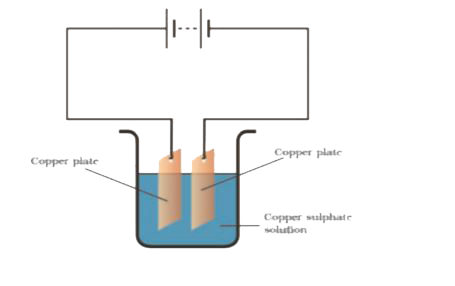
View SolutionObserve the circuit given in Fig. 14.8.
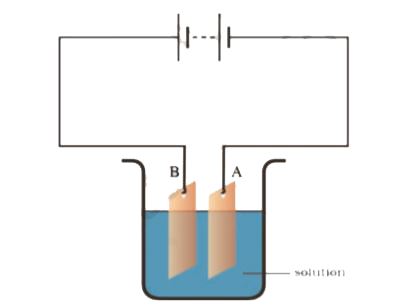
Boojho set up this circuit for purification of copper. What will be the nature of – (i) plate A (ii) plate B (iii) the solution.
Explain the process of purification.
View SolutionObserve the following circuit given in Fig. 14.9.
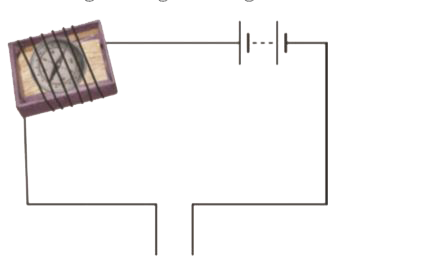
Current does not flow in the circuit if there is a gap between the two wires. Does it indicate that air is a poor conductor of electricity? Does air never conduct electricity? Explain.
View SolutionBoojho made the circuit shown in Fig. 14.10. He wanted to observe what happens when an electric current is passed through water. But he forgot to add a few drops of lemon juice to water. Will it make any difference to his observations? Explain.
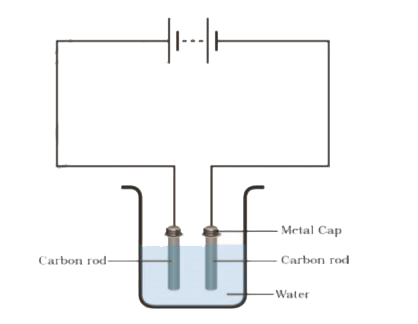
View SolutionObserving that the bulb does not glow in the circuit shown in Fig. 14.11 A, Boojho changed the circuit as shown in Fig 14.11 B. He observed deflection in the magnetic compass.
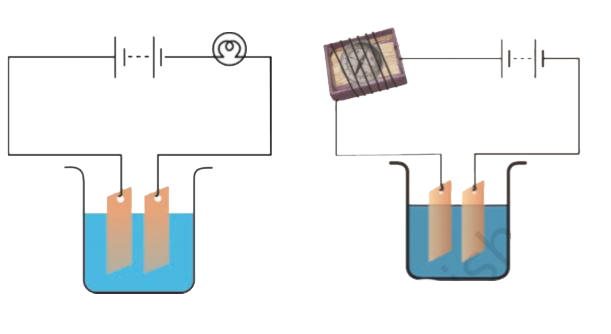
(i) What does the deflection in magnetic compass indicate?
(ii) Why did the bulb not glow in Fig.14.11 A?
(iii) What would be the effect of increase in the number of turns in the coil wound around the magnetic compass in Fig. 14.11B?
(iv) What will be observed if the number of cells are increased in the circuit shown in Fig. 14.11B?
View SolutionYou are provided with a magnetic compass, an empty match box, a battery of two cells and connecting wires. Using these objects how will you make a tester for testing an electric circuit? Draw the necessary circuit diagram and explain.
View Solution
LONG ANSWER QUESTIONS questions and complete solutions for chapter CHEMICAL EFFECTS OF ELECTRIC CURRENT of NCERT EXEMPLAR of Class 8